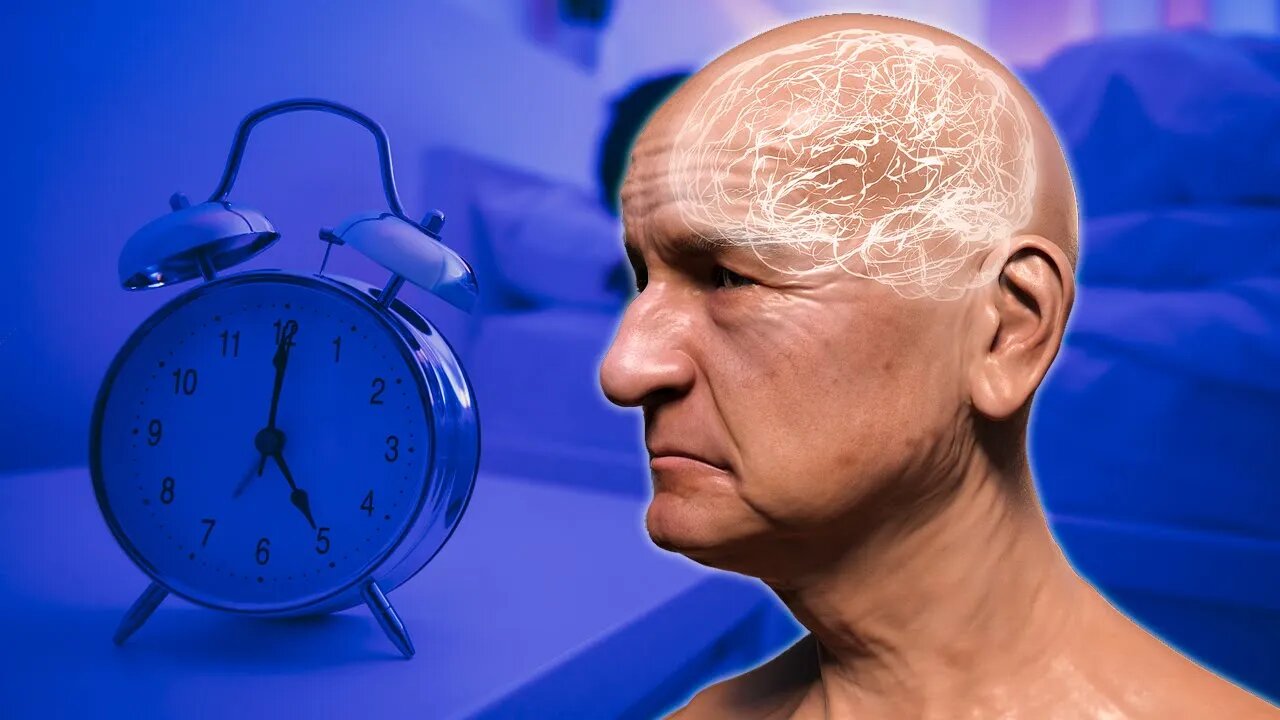Premium Only Content

Lack of Good Sleep Could Shrink Your Brain, Study Suggests
In today's video, you will learn why the brain reduces in size when you don't sleep and its consequences.
Do you sleep well? From 0 to 10, how would you rate your sleep?
Are your nights followed by insomnia or interrupted sleep? Do you have trouble falling asleep?
When we talk about health, poor sleep can increase the risk of heart disease, heart failure, high blood pressure, strokes, and diabetes.
Some people even say that it lowers sexual drive. Did you know that?
Even knowing how important sleep is, many people still can't rest at night simply because they can't easily fall asleep.
Do you suffer during the day because your nights aren't peaceful, then you know how hard it is to stay alert and concentrated during the day, right?
This happens because sleep has the role of resting and restoring the body.
Without a good night's sleep, the body will suffer the side effects: tiredness and toxins that hinder its functioning.
But this is not the only thing that happens when the body is prevented from sleeping.
According to a study from the University of Wisconsin-Madison, poor sleep causes the brain to self-destruct over the years.
But researchers say that lack of sleep definitely isn't good for the brain: the recommendation of a good sleep routine is still the rule for everybody.
We have many videos on the channel that can help you sleep better: essential oils, relaxing teas, natural supplements, etc.
If you have ever tried any of these tricks, leave your opinion in the comments below.
----------------------------------------
Facebook: https://bit.ly/38BWbw3
Pinterest: https://bit.ly/2Irvwa6
Disclaimer: The materials and the information contained on Natural Cures channel are provided for general and educational purposes only and do not constitute any legal, medical or other professional advice on any subject matter. These statements have not been evaluated by the FDA and are not intended to diagnose, treat or cure any disease. Always seek the advice of your physician or other qualified health provider prior to starting any new diet or treatment and with any questions you may have regarding a medical condition. If you have or suspect that you have a medical problem, promptly contact your health care provider.
-
 6:47
6:47
Natural Cures
1 year ago $1.27 earnedIf You Take Moringa Powder Every Day, This Will Happen to Your Body
4.43K3 -
 11:27
11:27
Adam Does Movies
14 hours ago $5.06 earnedWolf Man Movie Review - Does It Bite?
39.8K7 -
 11:57
11:57
inspirePlay
18 hours ago $7.33 earnedLongest Drive Wins! Elite Long Drivers Battle in Par 4 Elimination
54.3K5 -
 8:44
8:44
RTT: Guns & Gear
20 hours ago $4.10 earnedStreamlight TLR RM2 Laser - G | The Best PCC Light
36.2K1 -
 36:38
36:38
Athlete & Artist Show
1 month ago $2.75 earnedNCAA Hockey Was A Joke, TNT Hockey Panel Is The Best In Sports
31.5K2 -
 1:00:08
1:00:08
Trumpet Daily
23 hours ago $5.33 earnedBanning Mystery of the Ages - Trumpet Daily | Jan. 17, 2025
20.4K18 -
 15:10
15:10
Chris From The 740
1 day ago $2.91 earnedEAA Girsan Disruptor X 500-Round Review: Is It Reliable?
37K3 -
 1:00:38
1:00:38
PMG
18 hours ago $5.53 earnedCarnivore & Dr. Shawn Baker - Health Starts With Food
53K4 -
 1:28:13
1:28:13
Kim Iversen
19 hours agoCancelled Chef Pete Evans Exposes The One Change That Could End Big Food and Pharma
114K96 -
 4:20:21
4:20:21
Nerdrotic
20 hours ago $86.41 earnedDaradevil Born Again, Comics Industry CRASH, Neu-Hollywood REBUILD | Friday Night Tights #337
264K66